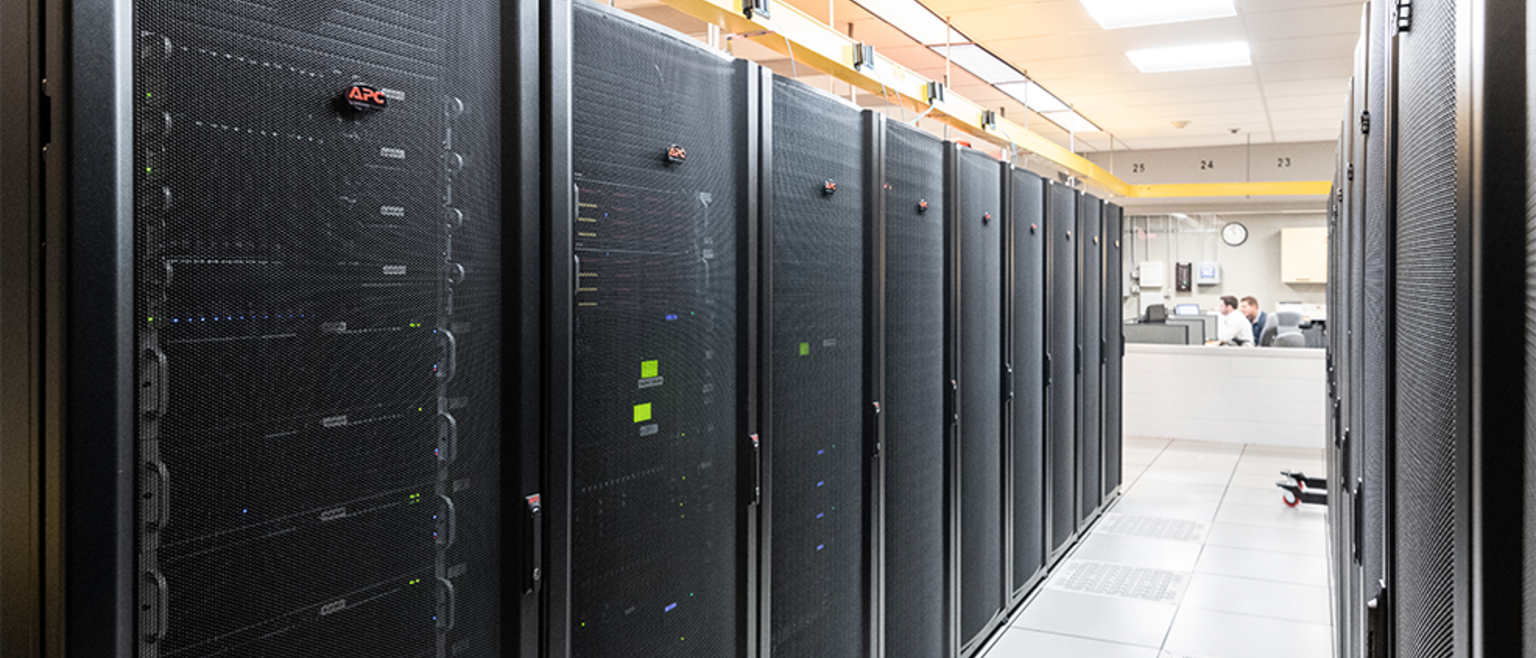What is Research Computing?
Research Computing delivers the tools, methods, and shared resources to enable Lehigh faculty, researchers, and students to build high-quality research projects that support their unique contributions to the academic community. Computation and data are increasingly intertwined with contemporary academic research methods across across the basic sciences, engineering, and humanities.
Our support ranges from infrastructure to education, including:
- System administration and support for Lehigh's high-performance computing (HPC) clusters
- Proposal assistance for faculty seeking funding to invest in our HPC condo program
- Data management support for storing and sharing research data
- Software installation support for the HPC clusters
- Training programs to facilitate the use of research computing tools from laptops to supercomputers
- Consultation and support for collaborative code development and visualization
How should I start a Research Computing project?
- Assemble a team. Most research is collaborative. If you are a student, seek out a faculty mentor or peers to work with you. Building long-lived software, data, and methods is easier with a large team. Academic research benefits from many different technologies that make facilitate collaboration.
- Make a plan. Work backwards from your end goal by imagining some of the steps along the way. Start with a simple prototype and imagine how this might grow into a larger project as you expand the scope of your research.
- Get Training. Join one of the research computing seminars to learn the tools of the trade.
- Schedule a consultation. Meet with a member of our team to discuss your strategy and resources.
- Request resources. As your project matures, prepare to scale it up using our on-premises virtual machines, high-performance computing cluster, or cloud infrastructure.
- Build a community. You can maximize the impact of your work by publish a journal article, releasing your software under an open-source license, and contributing your datasets to a public-access repository. Building robust documentation will make it easier for others to build upon your work.
Where should I store my research data?
Data management provides a vital foundation for any research projects. Many researchers who do not need intensive computing infrastructure nevertheless require long-lived, reliable, and accessible storage for their research output. While most basic research can be widely shared in journal articles, open data repositories, and the Lehigh Preserve, ongoing research requires fast, accessible storage for intermediate data that can be analyzed and mined for insight.
To meet this need, Research Computing hosts a two petabyte storage system based on Ceph, an open-source, fault-tolerant, distributed filesystem that supports both the high-performance computing (HPC) cluster and at-large research projects. Additionally, Ceph provides a high-speed, parallel "scratch" filesystem for projects that create short-lived intermediate data in the course of computations supported by the HPC cluster.
Lehigh provides a wide range of cloud storage solutions which can provide mechanisms for sharing data with diverse groups of collaborators. These tools are summarized in the storage finder. Manuscripts and small datasets which must be shared with a select group of editors can be shared easily via Google Drive. Larger datasets that require higher bandwidth or a connection to the HPC cluster can be stored on Ceph. Interested faculty can apply for a storage allocation, or elect to purchase Ceph storage for their projects. We recommend that faculty take two steps to learn more about data management:
- Review the data management plan library guide.
- Request on-premise HPC storage with Ceph.
- Consult the storage finder to review cloud storage options.
For general research data management questions, faculty and students are welcome to request a research consultation.
How can I get quick help?
- For technical issues, troubleshooting, and specific questions about our HPC platforms, open a High Performance Computing Help Ticket.
- For open-ended consultation and assistance navigating our research computing resources, schedule a consultation with our team.
